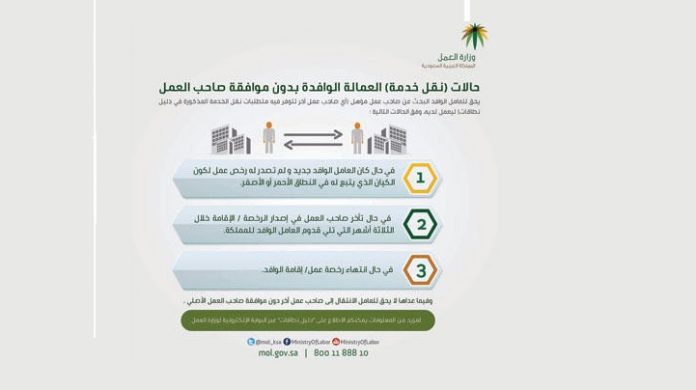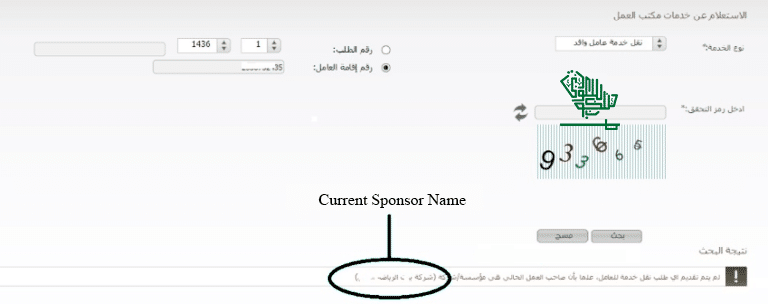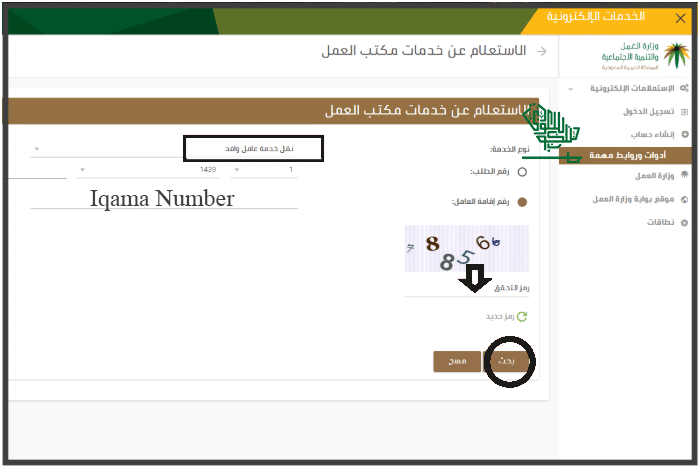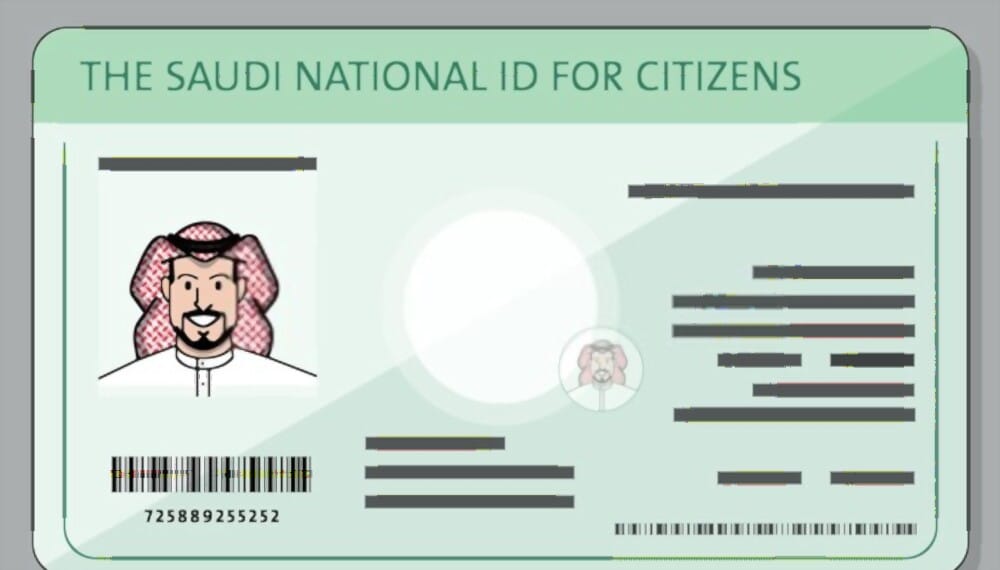Table of Contents
- What Conditions Allow the Iqama Transfer Without the Sponsor’s (Kafeel’s) Consent?
- Auto-Transfer of Sponsorship:
- Court-Approved Transfer of Sponsorship:
- How Do You Transfer Sponsorship Without the Employer’s Permission?
- How To Transfer An Iqama With a Court Ruling?
- What Documents Do I Need for a Transfer of Iqama Sponsorship?
- Can Domestic Workers in KSA Transfer Iqama Without a Kafeel’s Permission?
- To Wrap Up
Being an expat working in Saudi Arabia can sometimes be challenging due to the technicalities involved. Iqama, or the work permit, is an indispensable part of work in Saudi Arabia, as is the unique sponsorship (kafeel) involved.
This can be tough for someone new to this work model. Hence, in this article, we have compiled some of how you can transfer your Iqama.
You can do this without the consent of your sponsor (Kafeel) or employer as long you fulfill your work contract.
What Conditions Allow the Iqama Transfer Without the Sponsor’s (Kafeel’s) Consent?
There are two cases where an expat can transfer their Iqama without Kafeel’s consent: auto-transfer or via court approval. Both are valid under certain conditions.
You may also like to read about Digital Iqama: All You Need To Know.
Auto-Transfer of Sponsorship:
In specific cases, one’s Iqama will automatically be eligible to be transferred to a different sponsorship. This usually happens when the Kafeel fails to fulfill their end of the contract. Some cases are described below:
1. The kafeel falls in the Red Nitaqat category
A red nitaqat kafeel is an employer who cannot arrange visas for new foreign employees. Red nitaqat kafeels also fail to provide transfer of Iqama from other sponsors.
Under these circumstances, the employee can transfer Iqama without the permission or consent of his kafeel since the sponsor cannot do it themselves.
2. The kafeel fails to provide the Iqama.
The cut-off time frame for this is three months after the employee arrives.
If the kafeel does not provide you with an iqama or transfer after this time, you can apply for it yourself.
Recommended: How To Check Name And Other Details With Iqama Number
3. Your Iqama or labor card expires.
As per Saudi laws, you can apply for an auto-transfer of sponsorship three days after your Iqama or labor card expires.
4. Your employer is not paying you a recommended salary.
Under the Kingdom’s wage protection system, you can transfer your sponsorship from your current kafeel, especially if they have not paid you salaries in three months.
Moreover, this will allow you to explore more options and perhaps find a new employer that better fits your needs.
Recommended: Getting A Refund For MOFA Attestation Fees
Court-Approved Transfer of Sponsorship:
Of all the cases mentioned above, the expat automatically becomes eligible to transfer their Iqama. But some cases, such as those we’re saying now, might require the expat to have their application approved. These approvals usually happen in court, and there is a different application process.
1. End of employment contract:
You can apply for a transfer via court laws once your contract with a commercial body ends.
2. If you discover a Tasattur or an illegal coverup in your organization:
You are eligible for a court-ordered transfer of sponsorship. Ensure you know your rights so you are not manipulated into breaking the law.
3. If the court passes a judgment in favor of the expat
This can also occur if you have spent 12 months with your current employer and are ready to move to another job. By law, your employer cannot hold you back under the circumstances.
4. Before you complete your contract with an employer, give the following conditions.
- 12 months have passed since you came into the Kingdom.
- The contract is terminated as of Article 77.
- You apply for a three-month notice to transfer your job.

You may also like to read about the Tawakkalna App: What Is It And How Do I Register?
How Do You Transfer Sponsorship Without the Employer’s Permission?
The process to apply for a transfer of Iqama from a current or previous employer is quite simple. You will not need the permission of your employer.
That is to say, if you fall within the first four categories, you can opt for an auto transfer. To make things easy, we have outlined the method here for you. Let’s get to it.
- A new kafeel will put in a transfer of employee requests through the QIWA platform.
- The Ministry of Labor will accept the request within 24 hours. It will not need approval from the previous employer.
- You can check your application status in the Ministry of Labor (MOL) application.
- As soon as the MOL accepts your application, pay the iqama sponsorship transfer fee. This fee depends upon the transfer, usually between SR 2000 and SR 6000.
- Some kafeels or employers may ask you to cover half of the cost of this process. But bear in mind that under Saudi law, the employer covers the entirety of the fee.
- Monitor your iqama status in the Absher application. Once your new employer appears on it, your application is through. After that, you can visit the Jawazat office to print your new Iqama.
This procedure is wholly online and, hence, sometimes may show errors. If something like that occurs, our new kafeel will need to visit the Jawazat office and carry out this process manually.



Recommended: Getting Passport Issued For Newborn Of Indian Parents In KSA
How To Transfer An Iqama With a Court Ruling?
If your case falls under the second category or the last four conditions, a court ruling in your favor will decide the rest.
You can transfer your sponsorship to another employer without prior approval from your previous kafeel. The process is pretty similar to an auto-transfer and relatively easy.
- The new kafeel will visit the labor office with all necessary and valid documents.
- The Maktab Amal officer meticulously reviews the case, all the records, and the court ruling.
- Once satisfied, the officer will transfer the employee’s iqama sponsorship to the MOL system.
- You can monitor the status of the application in the MOL database
- You have to pay an iqama sponsorship transfer fee. As highlighted above, the new employer covers this cost
- Once your Iqama is approved and ready, you can visit any Jawazat center and get a print of it
Recommended: Creating and Activating An Absher Account
What Documents Do I Need for a Transfer of Iqama Sponsorship?
The documents you have to offer will build your case if you want a transfer of sponsorship. Of course, this would be without a previous employer’s consent.
The following documents are crucial and should be ready and on hand.
- Iqama of an expat employee.
- Passport copy of expat employee.
- The court ruling or decision for the employee.
- A request letter from the new kafeel or employer. This letter needs attestation from the Chamber of Commerce and should carry a valid reason for the transfer of sponsorship.
- Some of the most typical causes are discussed above.
Can Domestic Workers in KSA Transfer Iqama Without a Kafeel’s Permission?
KSA prides itself in smart and unconventional labor safety laws. If you are a domestic worker, you deserve the right to transfer an iqama without your kafeel’s permission.
Here are ten of the most common reasons a domestic help may leave particular employment. That too, without violating the law and transferring the Iqama:
- The employer fails to pay them for more than three months.
- If the employer does not pick up the employee upon their first arrival from the airport,
- After one month of iqama expiry.
- A hoax huroob case registered by the employer.
- If the employee fears his life or the work, it threatens his safety.
- Physical harassment or mistreatment by the employer towards the domestic help.
- If a domestic employee is rented out to another person without the help’s consent.
- The employer fails to attend the legal proceedings of the employee two times in a row.
- The MOL thinks it is appropriate and legitimate.
- The employer has disappeared, leaving the domestic help hanging, unsure, and without pay.
Recommended: Differentiating Between A Original And Fake Saudi Visa
To Wrap Up
The employer-employee relationship is a very delicate and should be handled as such. Both parties must keep up their part of the deal for the dynamic to work smoothly.
Transferring an iqama without the knowledge or consent of the kafeel is not ideal. But under such circumstances, there is no other choice.

Tayyaba is a seasoned writer, author, and dentist passionate about healthcare and storytelling. She combines her medical expertise with her love for writing to create insightful and engaging content that educates and inspires readers.




